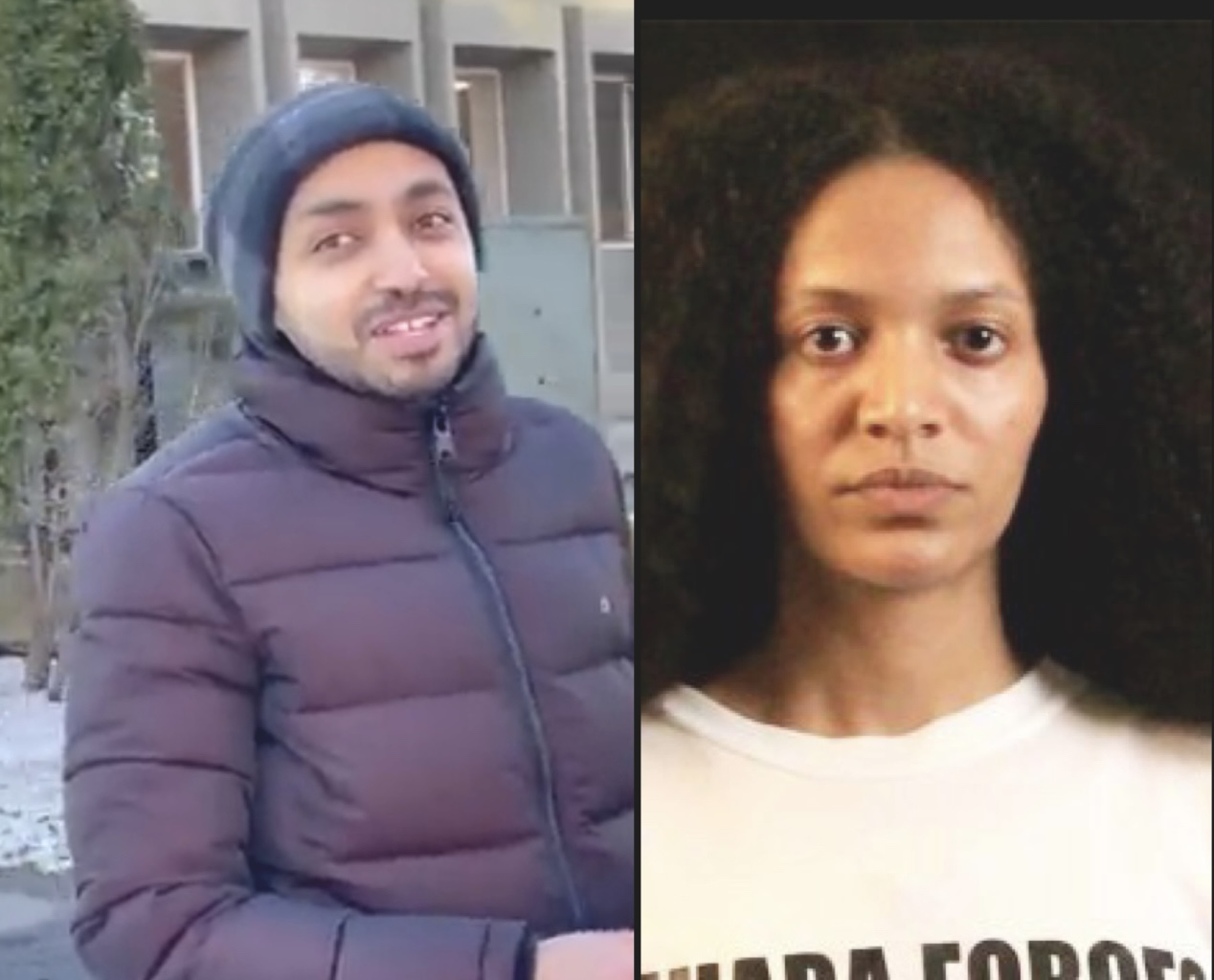“We love you, we love Tigray,” said Ethiopian-American protesters, who were confronted by a hostile TPLF supporter near the American city of Boston. In a new viral video, a top Tigrayan activist named Lwam Gidey approached the anti-war protestors in Tufts University, but was left speechless as a protester responded with a message of love and unity.
Since November 2020, the Tigrayan Peoples Liberation Front (TPLF) rebel group has waged a brutal war on Ethiopians, leading to thousands dead and millions displaced. Simultaneously, TPLF members and supporters in Europe & America initiated a coordinated propaganda machine to push an alternative reality, portraying themselves as victims, including Lwam Gidey who created an online disinformation network named “Stand with Tigray.” One of the dirty tactics of this online network has been to bombard western journalists and politicians, with the false narrative of “Tigray Genocide” on social media, even during the slaughter of non-Tigrayans in Maikadra and other towns that the TPLF rebels decimated.
However, the anti-war protesters in Tufts University did not seem to care who Lwam was and one unidentified man cordially told her “we are brothers and sisters.” When she repeated the TPLF slogan “Tigray genocide” (which has been debunked by a UN-led investigation), the Ethiopian-American protester said “I am sorry you feel that way,” explaining how all “wars are bad,” which is why Ethiopians condemned TPLF for triggering the ongoing war of insurrection.
On social media, people who watched the viral video reacted with praise to the Ethiopian protester who calmly deescalated the volatile TPLF supporter. “This is an illustration of how Lie and Truth look like when they meet each other,” one Twitter poster said.
Later in the video, the anti-war and anti-TPLF protesters told the Tigrayan activist that there should be no ethnic division between Ethiopians. “We are all Amhara, Tigrayan, Oromo etc”….”you are our people, we are the same people and you know that,” the man stated politely, once again saying “I love you” to the stranger Tigrayan who confronted him.
On Twitter, many Ethiopians admired the humble, caring and calm behavior of the anti-war protester, saying he exemplified the Ethiopian culture and aspirations for peace.
Lwam Gidey and other Tigrayan diaspora activists who support the rebel war in Ethiopia have long been criticized for spreading misinformation to divide Ethiopians. One of their critics has been the anti-war famous Tigrayan journalist Hermela Aregawi who used to previously sympathize with TPLF but later changed her mind after analyzing facts on the ground. Despite being ethnic Tigrayan herself, Hermela has opposed the attempt by TPLF to sow division between Tigrayans and other Ethiopians. Now she is one of the leaders of the anti-war movement known as #NoMore, which organized this protest rally in Tufts University.
The protesters there were marching against an employee of the Fletcher School of Law at Tufts University named Alex de waal, who has been an ideological supporter of the TPLF ethno-fascists since the 1970s. After TPLF rebels began the deadly insurrection in 2020, Alex has written numerous articles hiding the atrocities committed by the rebels and falsely portraying TPLF as the victim. Due to Alex’s association with the university, his alternative version of accounts has been unchallenged and published on various western media without scrutiny. Alex also brought in TPLF’s Mulugeta Gebrehiwot, a former rebel fighter, as part of the controversial “world peace foundation” online group, which has become a proponent of the war.
The protester in the viral video at Tufts University said Alex De waal is “promoting war and that is not right”….”he (Alex) is promoting false narratives and that is not helping” bring peace, he added.
Alex has a long history of becoming a surrogate for abusive regimes, often selling his white privilege to have his pro-fascist writings get published in western media to misinform readers and shape narratives. In the late 1990s, Alex created a group called “Africa rights” to disseminate one-sided propaganda to prevent peace and reconciliation inside Rwanda & that African region. In 2016, an investigative article by the Human Rights Quarterly journal accused Alex de waal of becoming a “proxy for the new RPF-dominated Rwandan government” and “spreading an easily consumable one-sided narrative of the Rwandan conflict, that contributed to RPF impunity.” In recent weeks, Alex has published several controversial articles, including a commemoration honoring former TPLF insurrection leader Seyoum Mesfin and a video suggesting the collapse of Ethiopia & demanding Ethiopians ask TPLF for “forgiveness.” Alex also praised TPLF for running “a just war” and congratulated them in November as the rebels appeared to be victorious in overthrowing the Ethiopian government.
One of the demands of the #NoMore global movement has been to condemn pro-war narratives by foreign individuals like Alex and by other racist western officials who depict African authorities as savages and lionize violent rebels as victims. Such narratives have perpetuated the TPLF insurrection in Ethiopia by justifying the rebel violence, which included Western officials downplaying atrocities by rebels. A Change.org petition to “Revoke Alex de waal from Tufts University” has become one of the most signed petitions on the popular campaign site. But Critics say, as conflict entrepreneurs and foreigners are exploiting divisions inside Ethiopia for their own geopolitics, it is up-to the average Ethiopians to transcend ethnic politics, send olive branch to Tigrayans who sympathize with the rebels and build people-to-people love & harmony in Ethiopian society.




